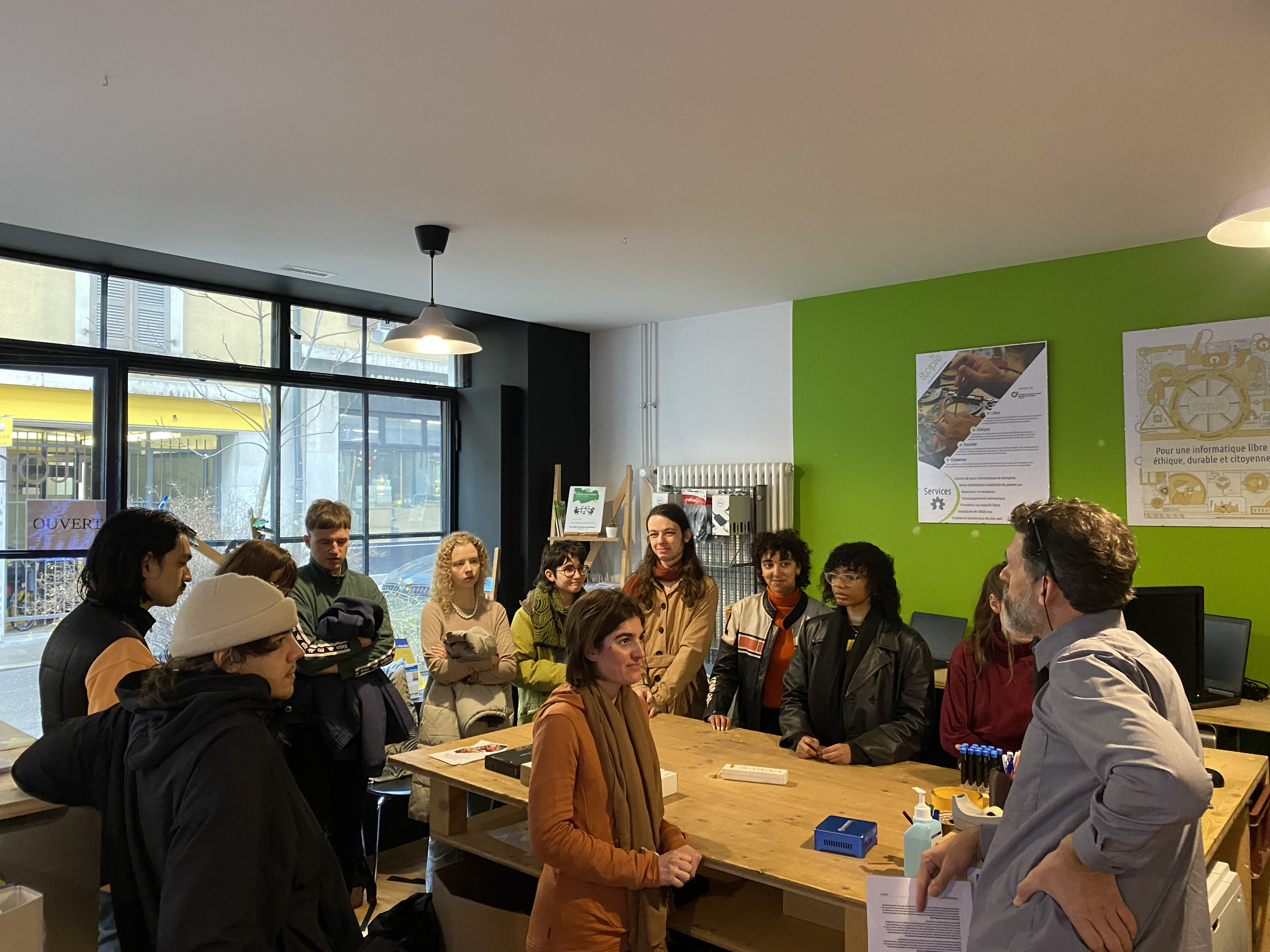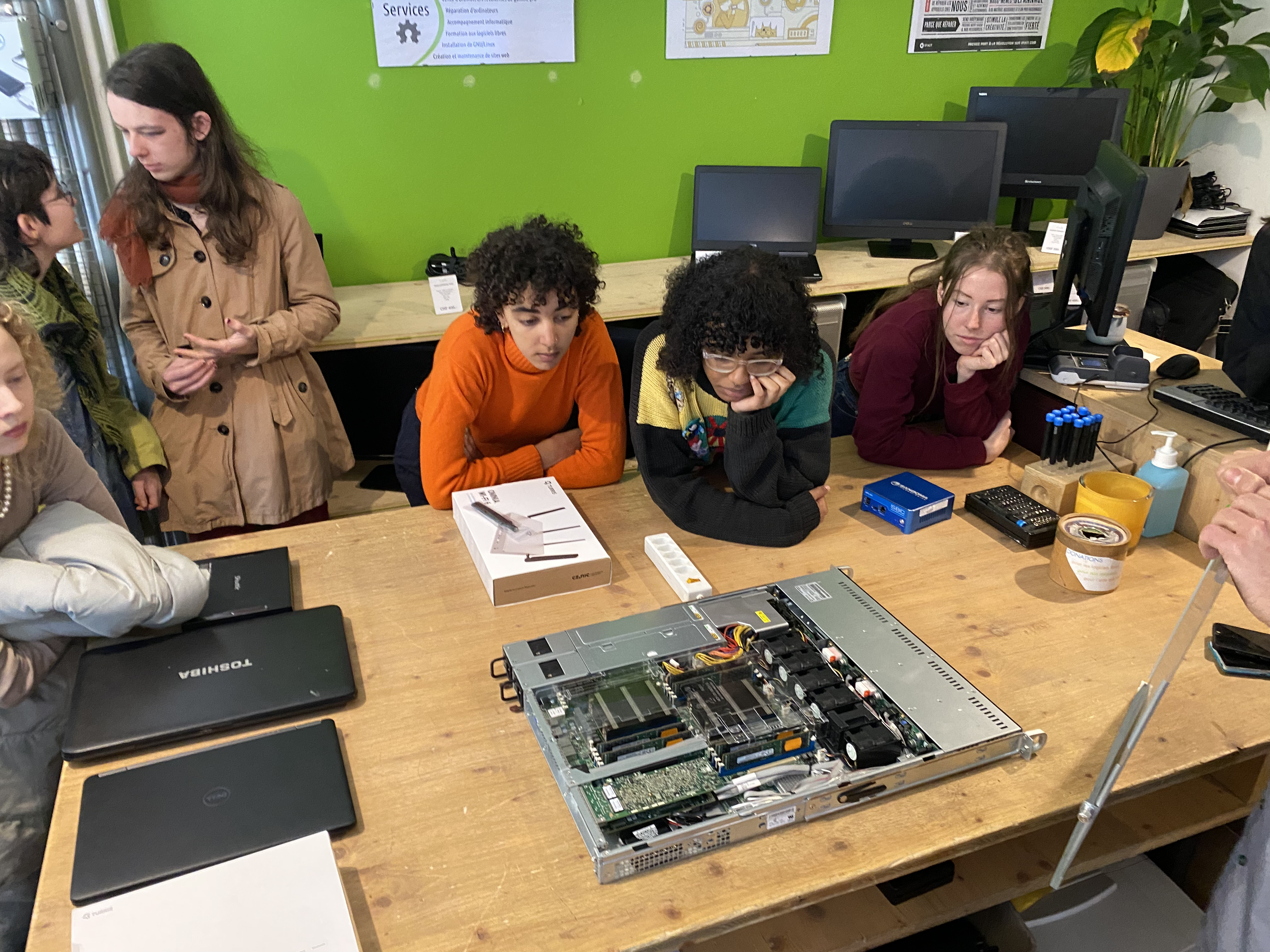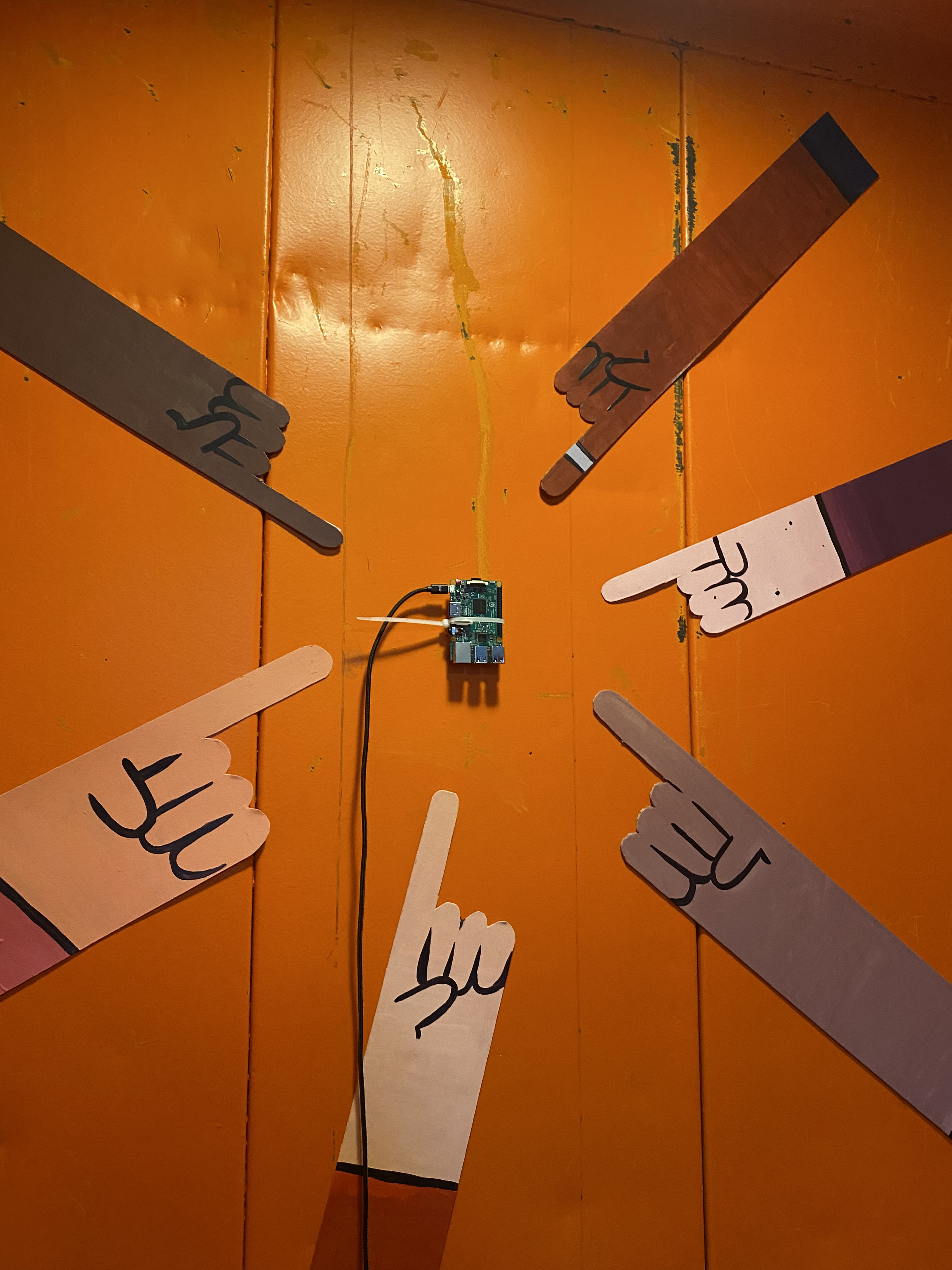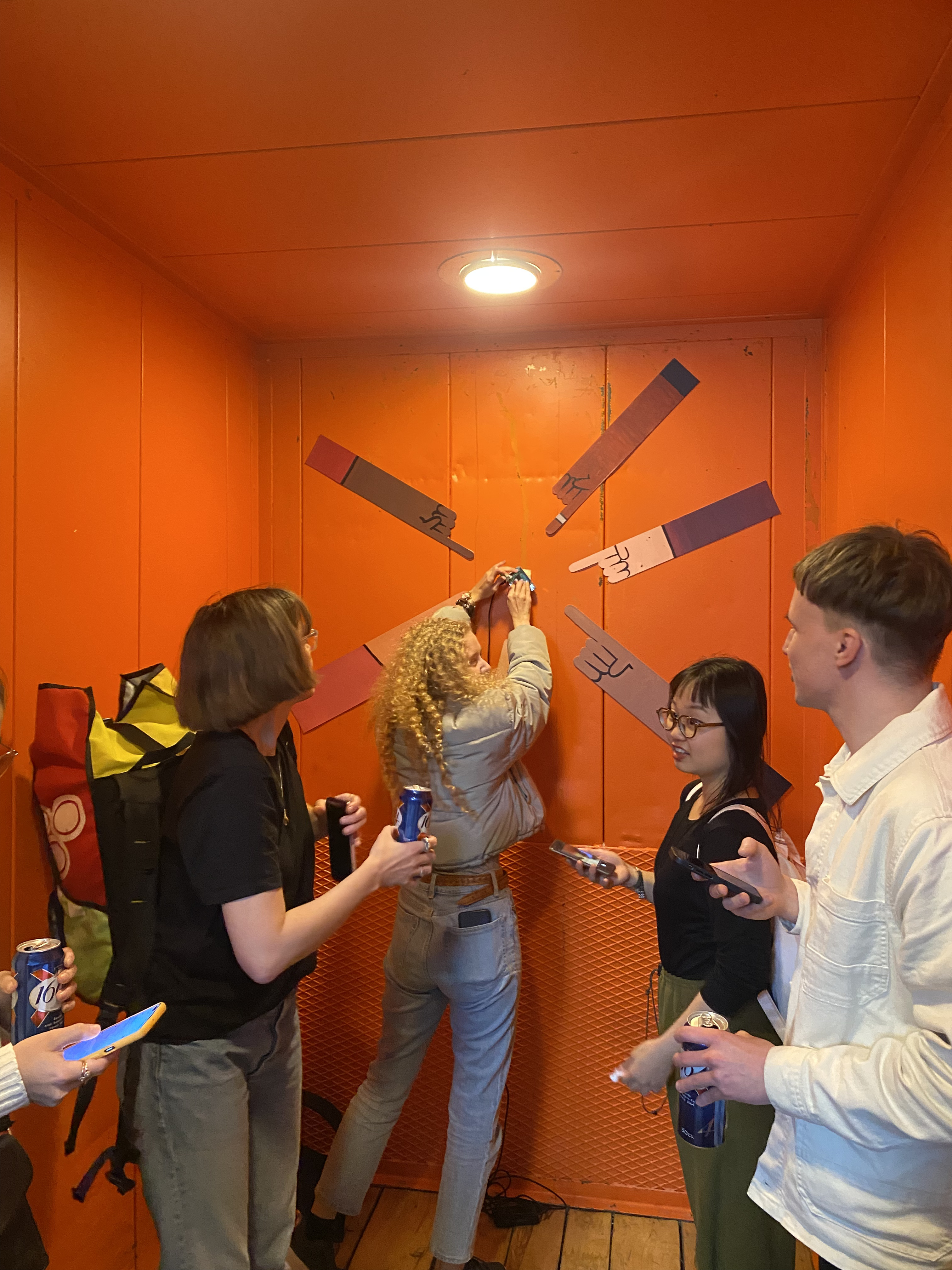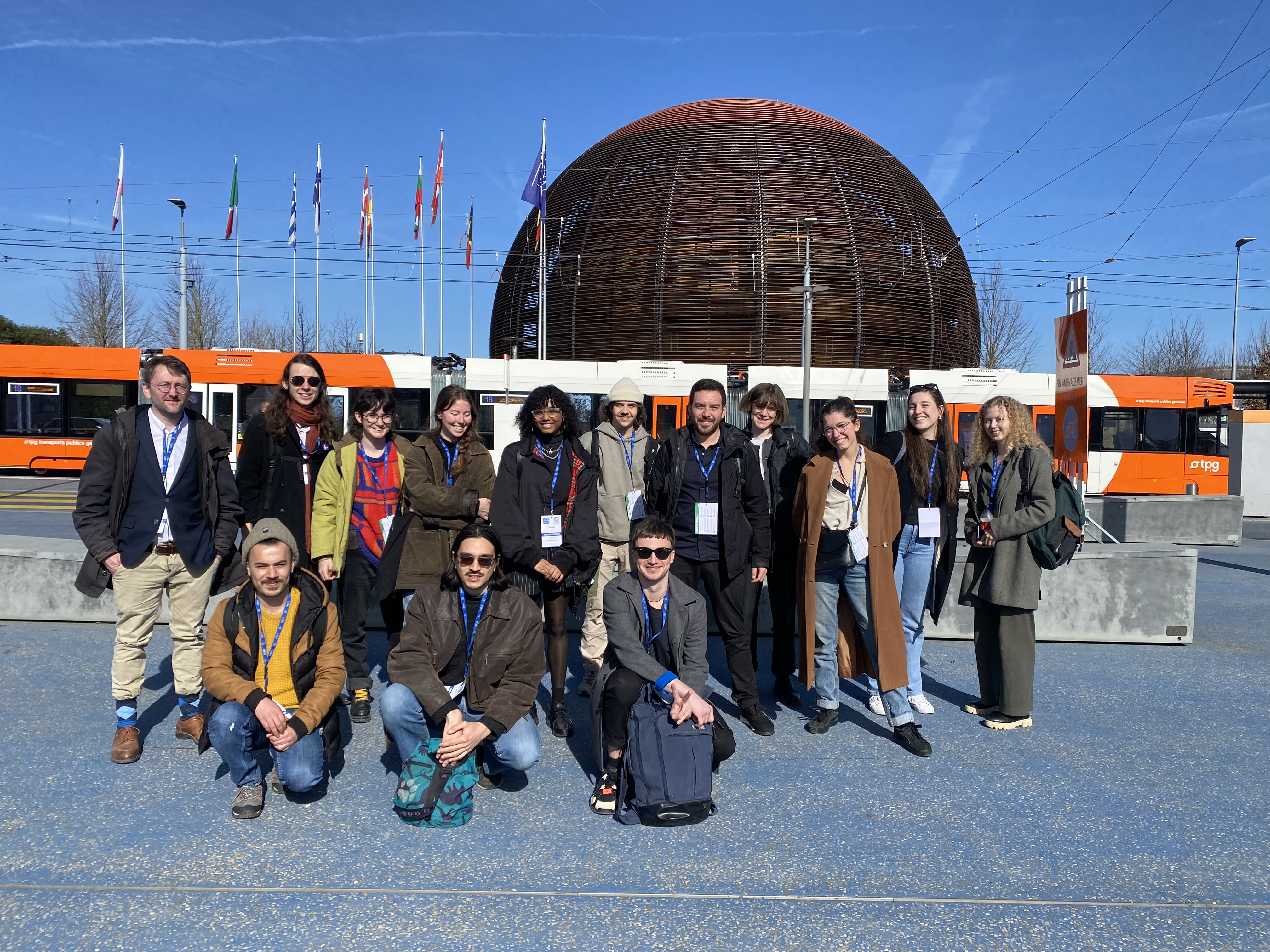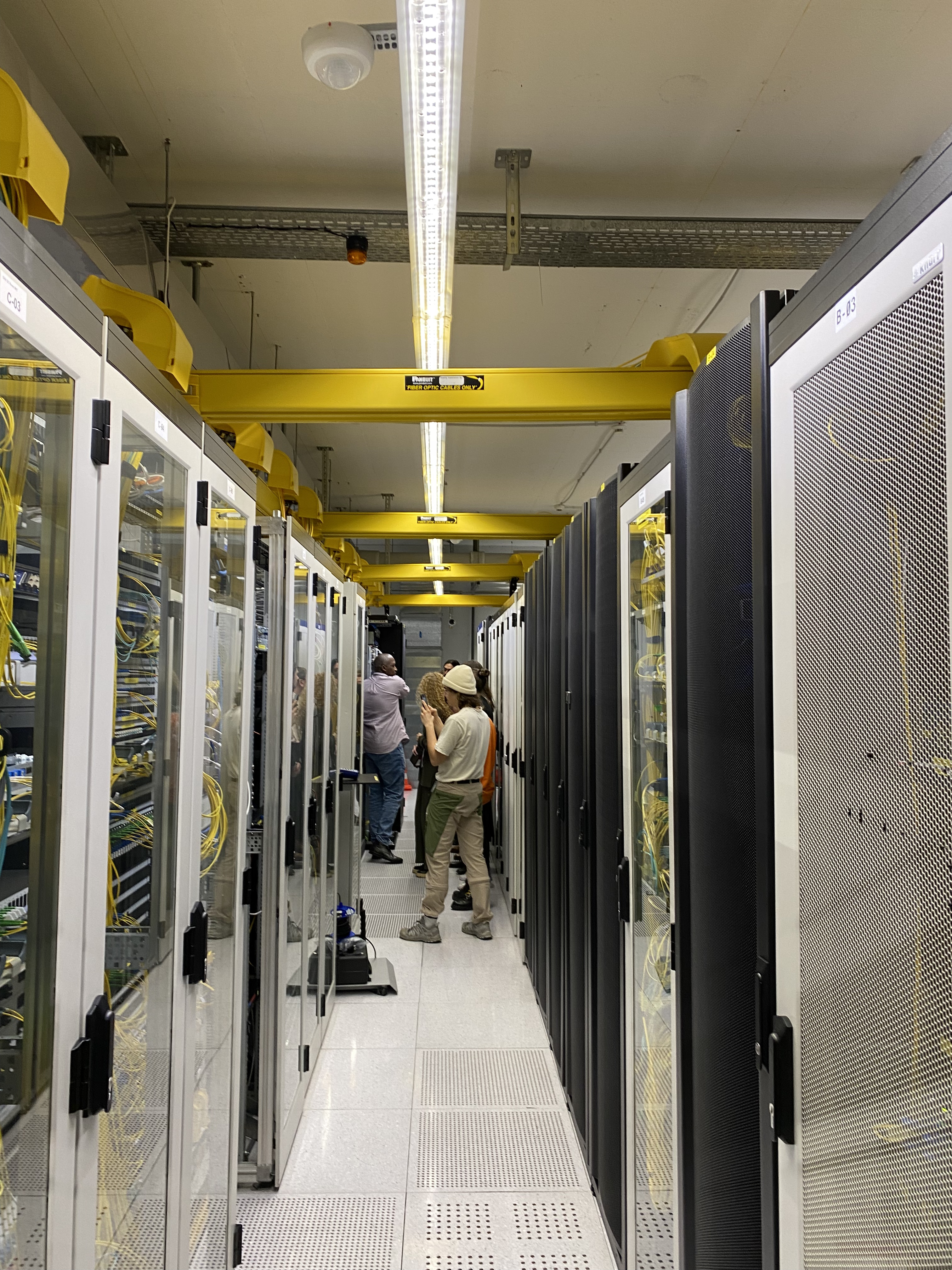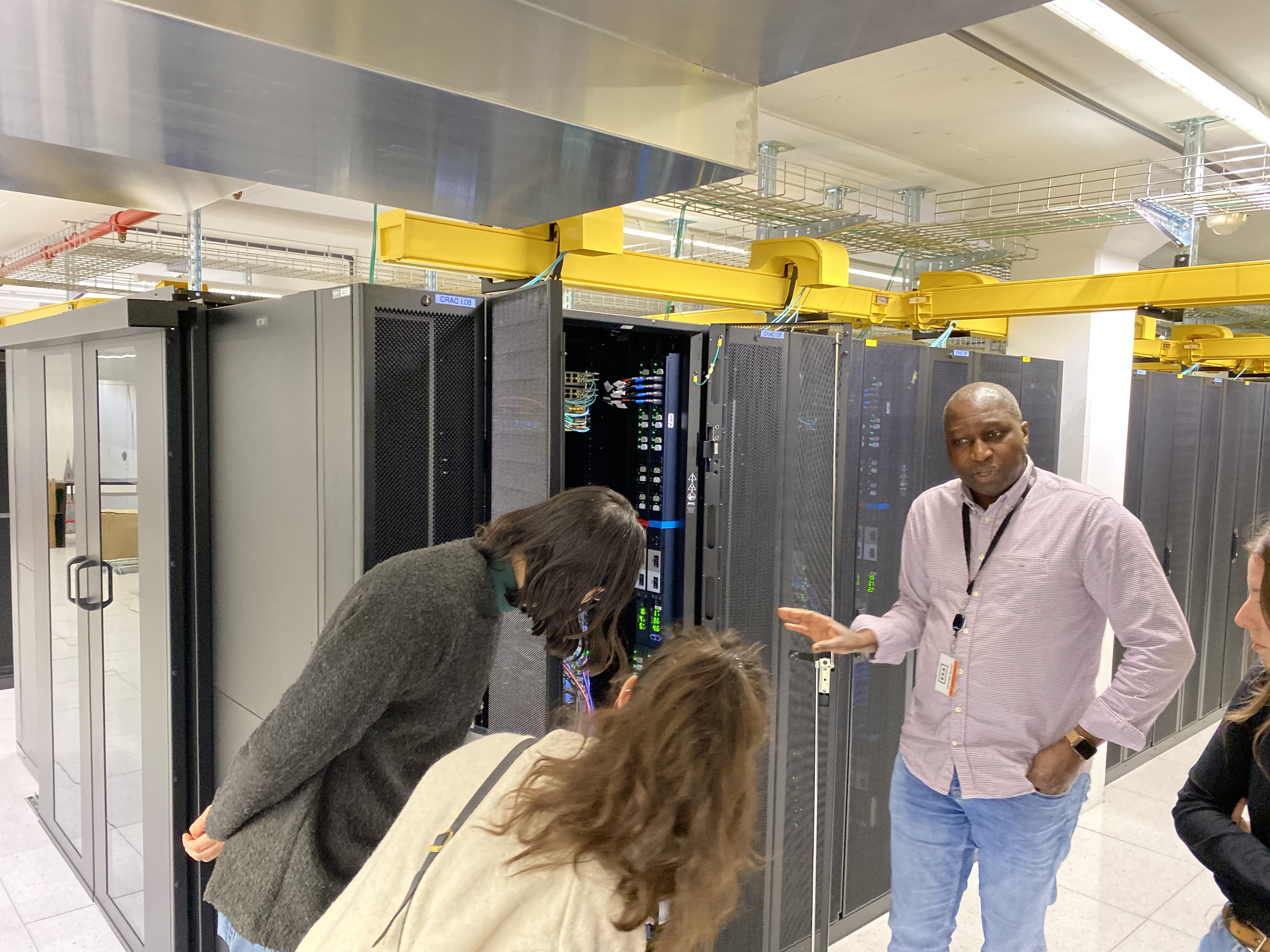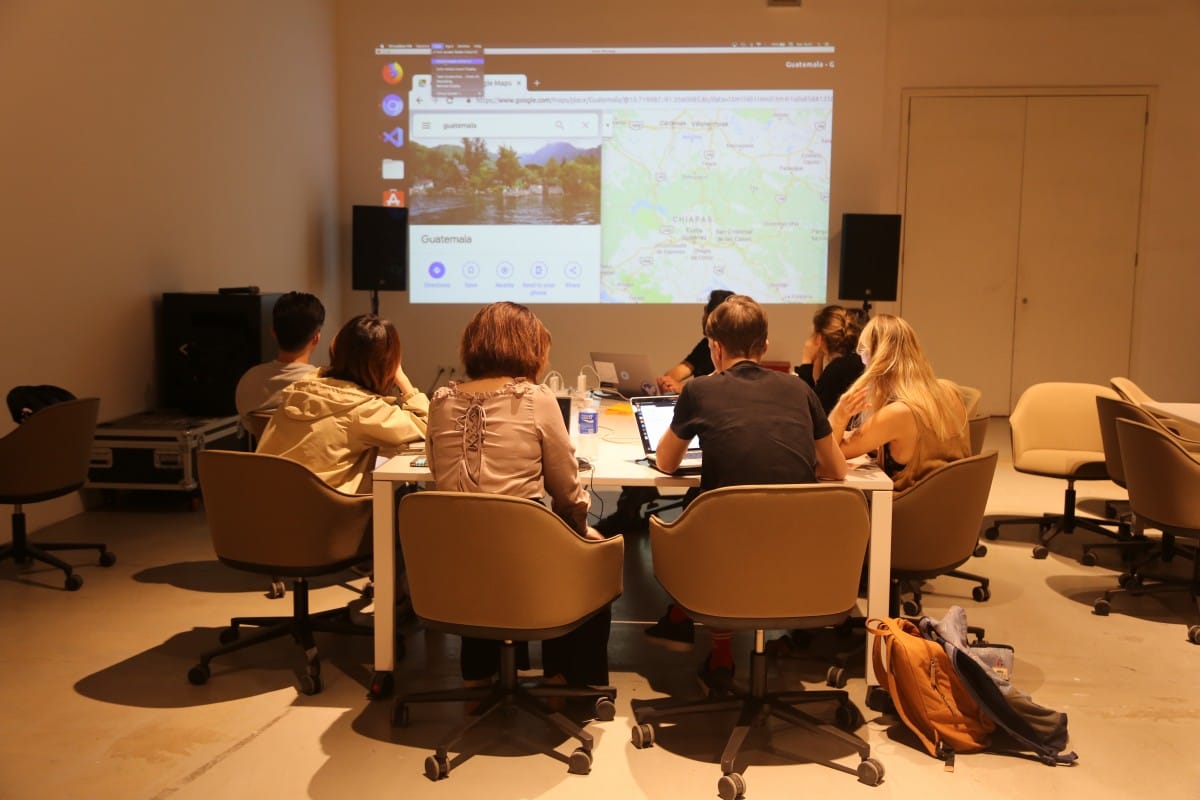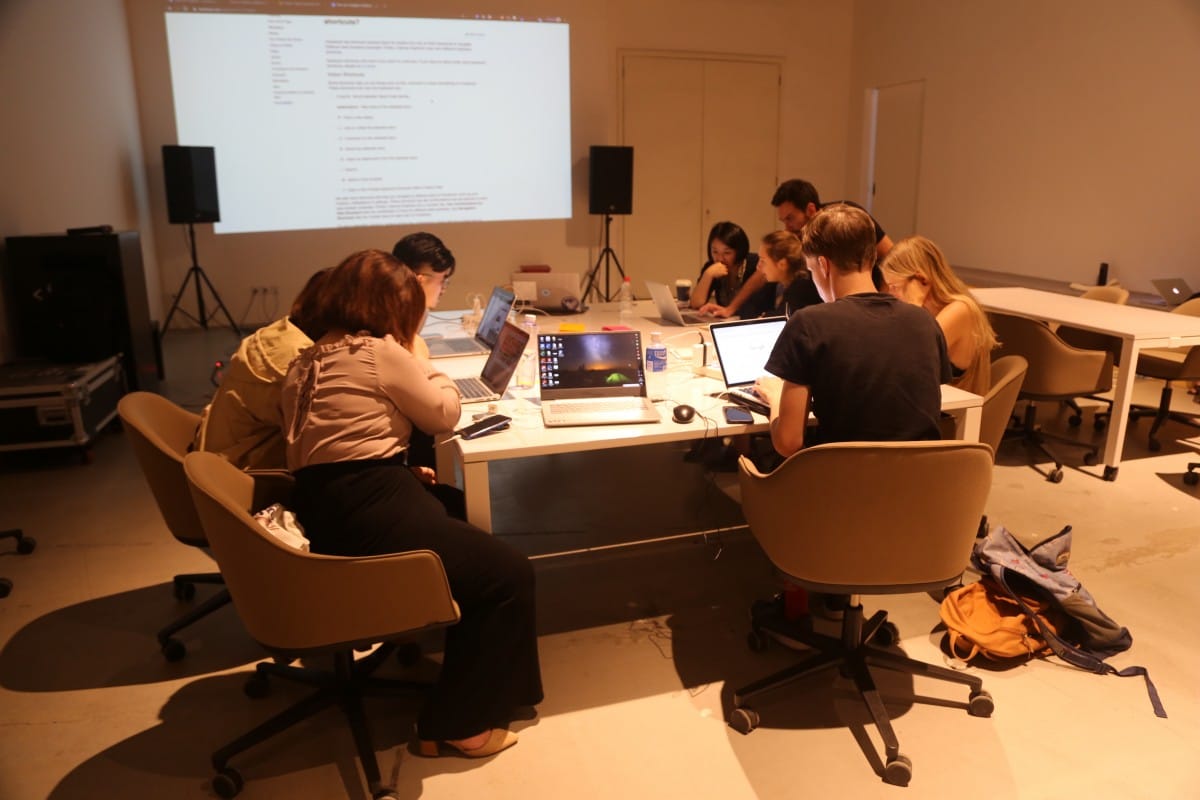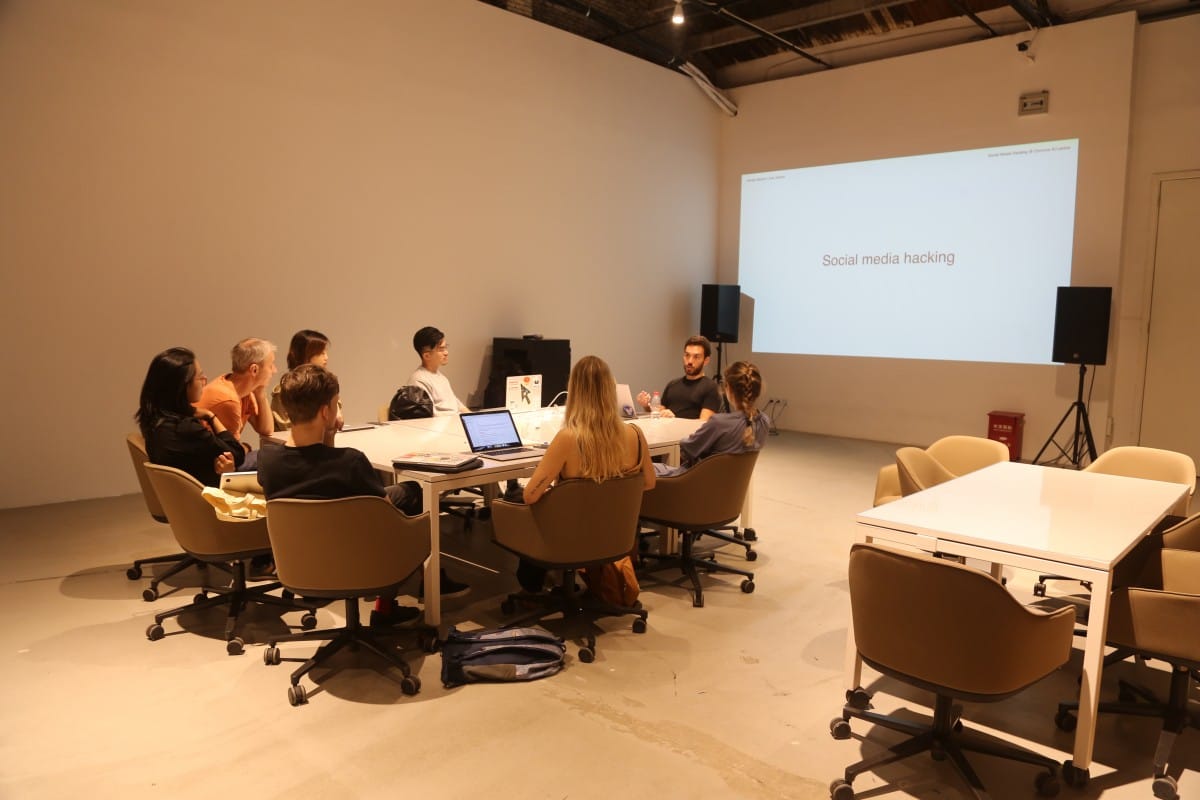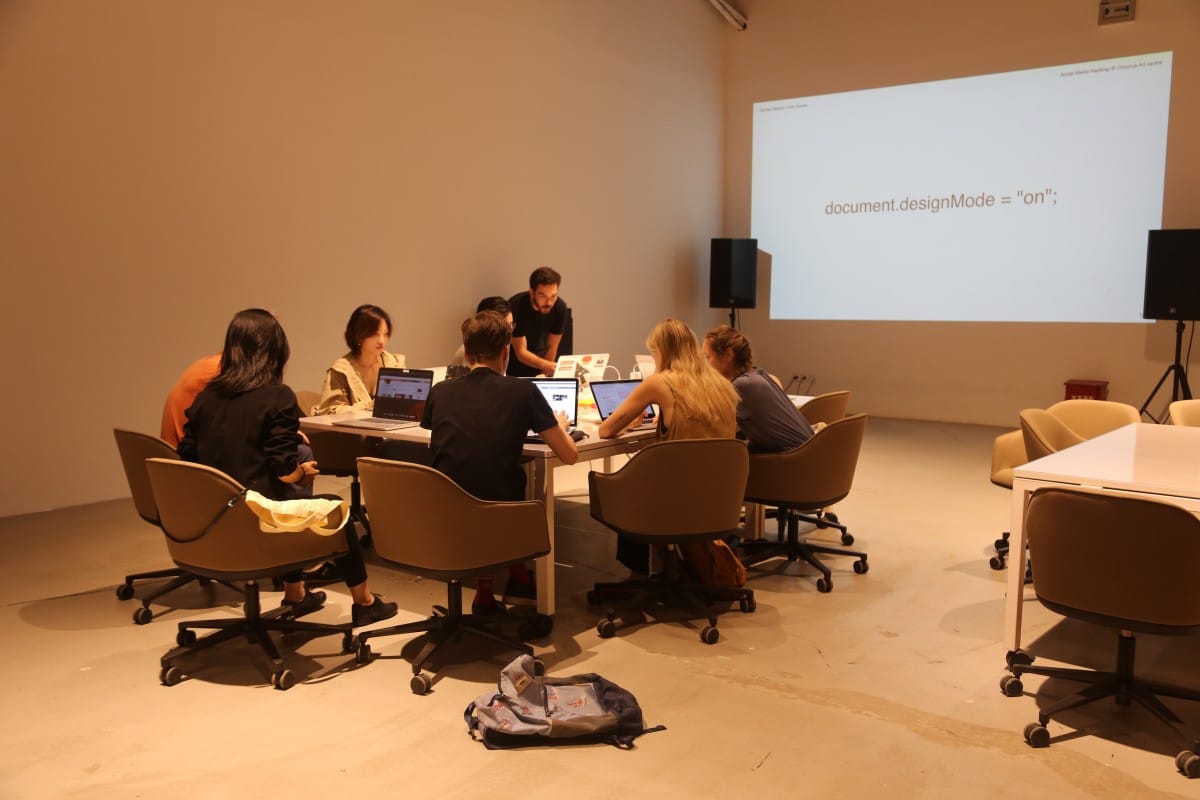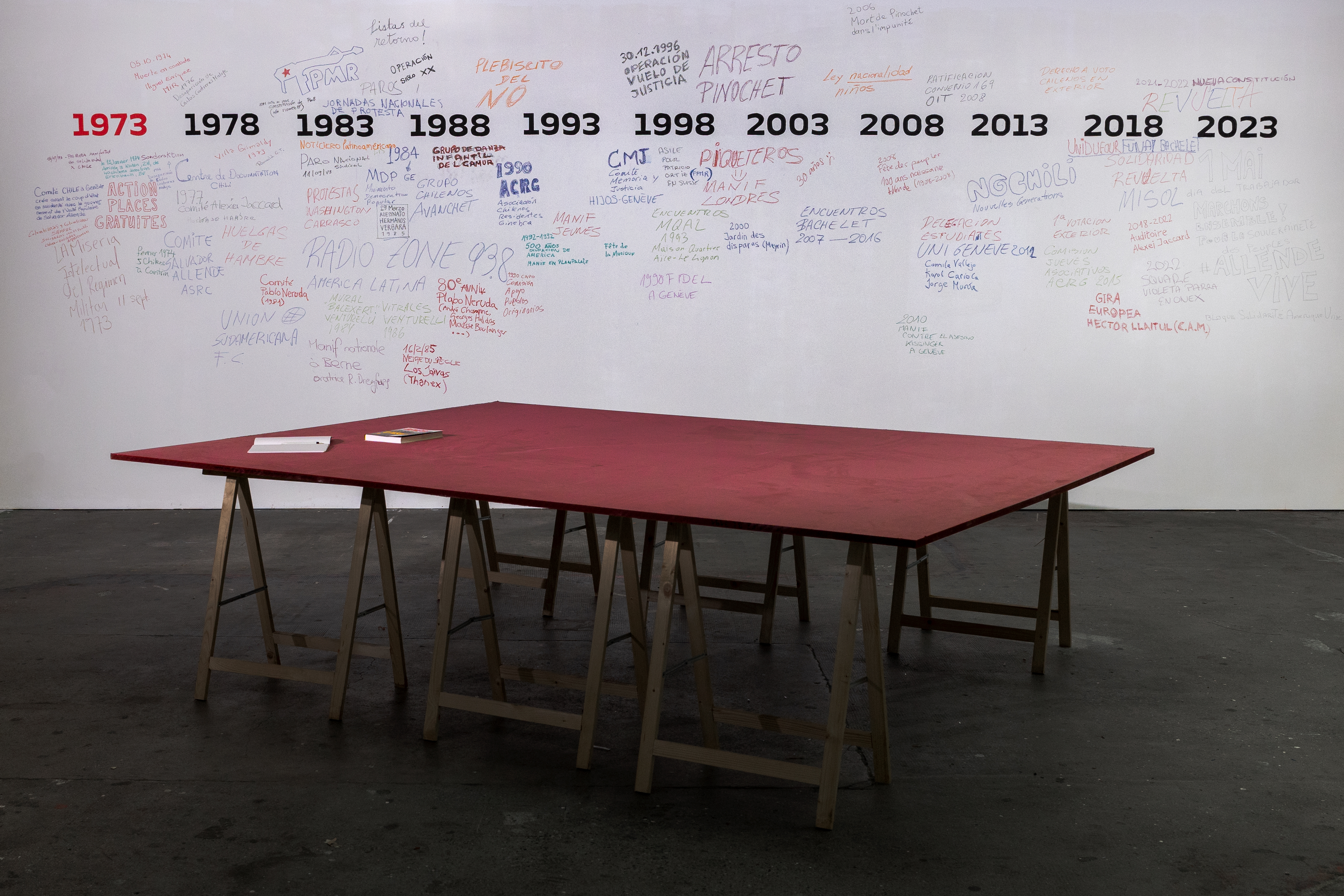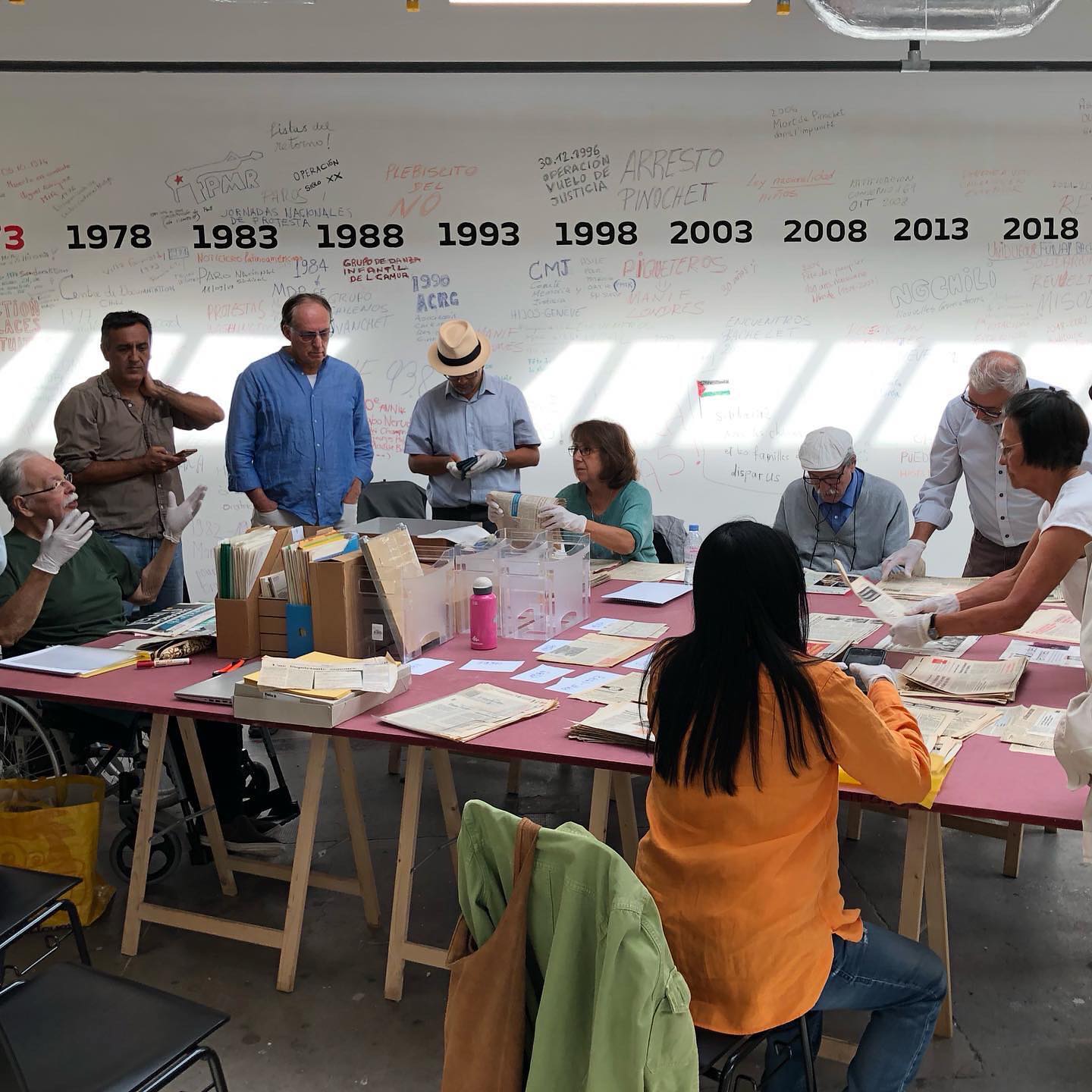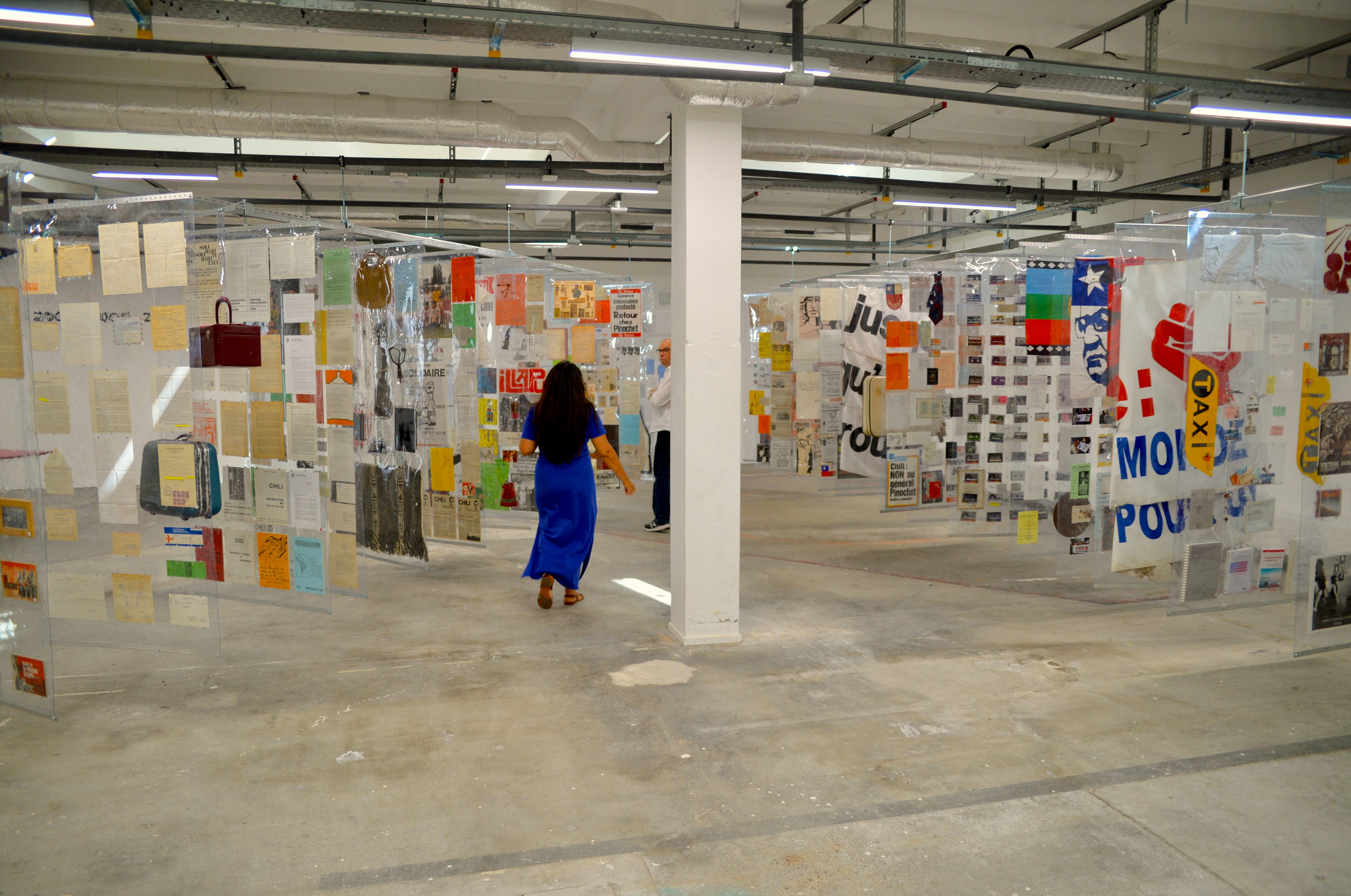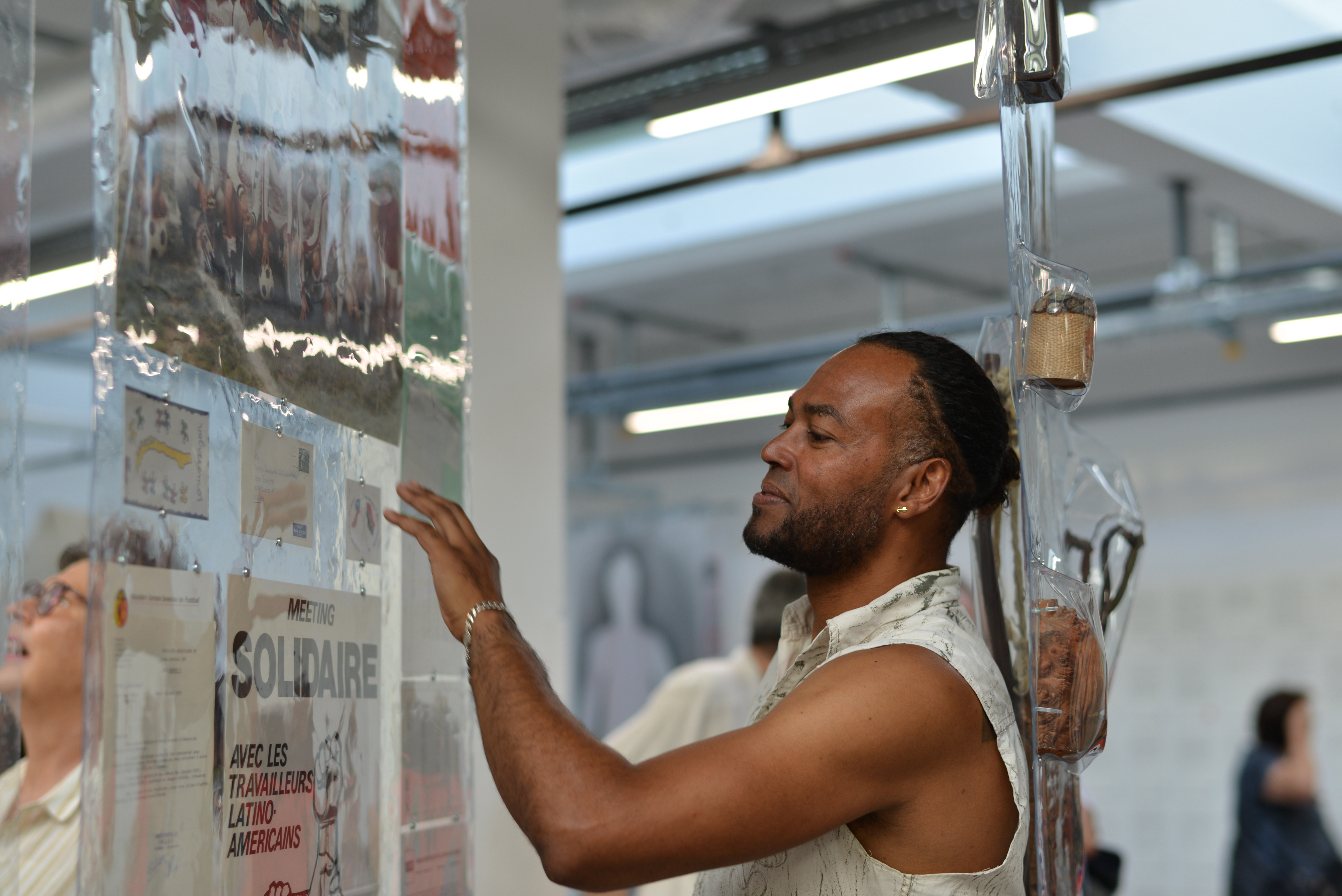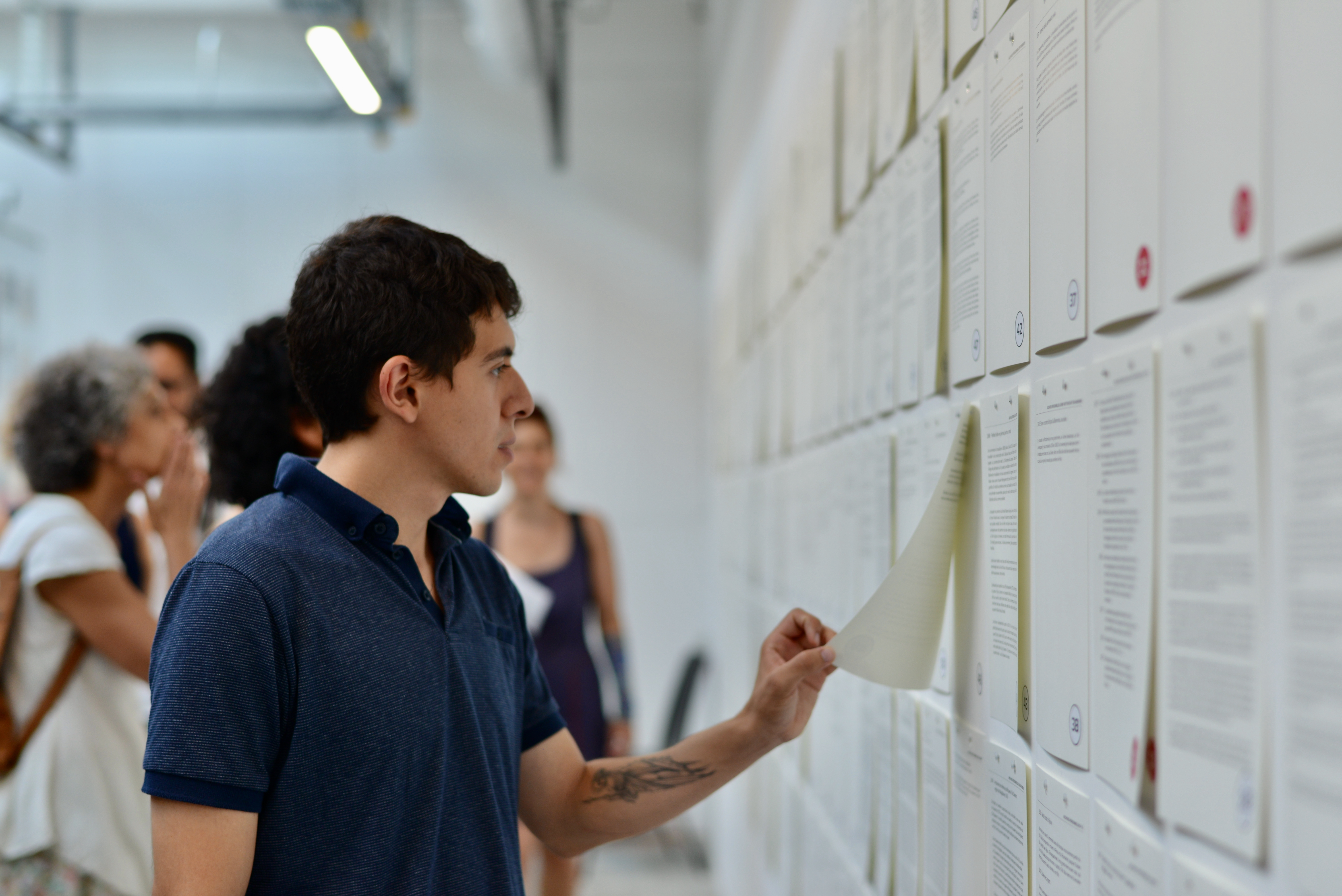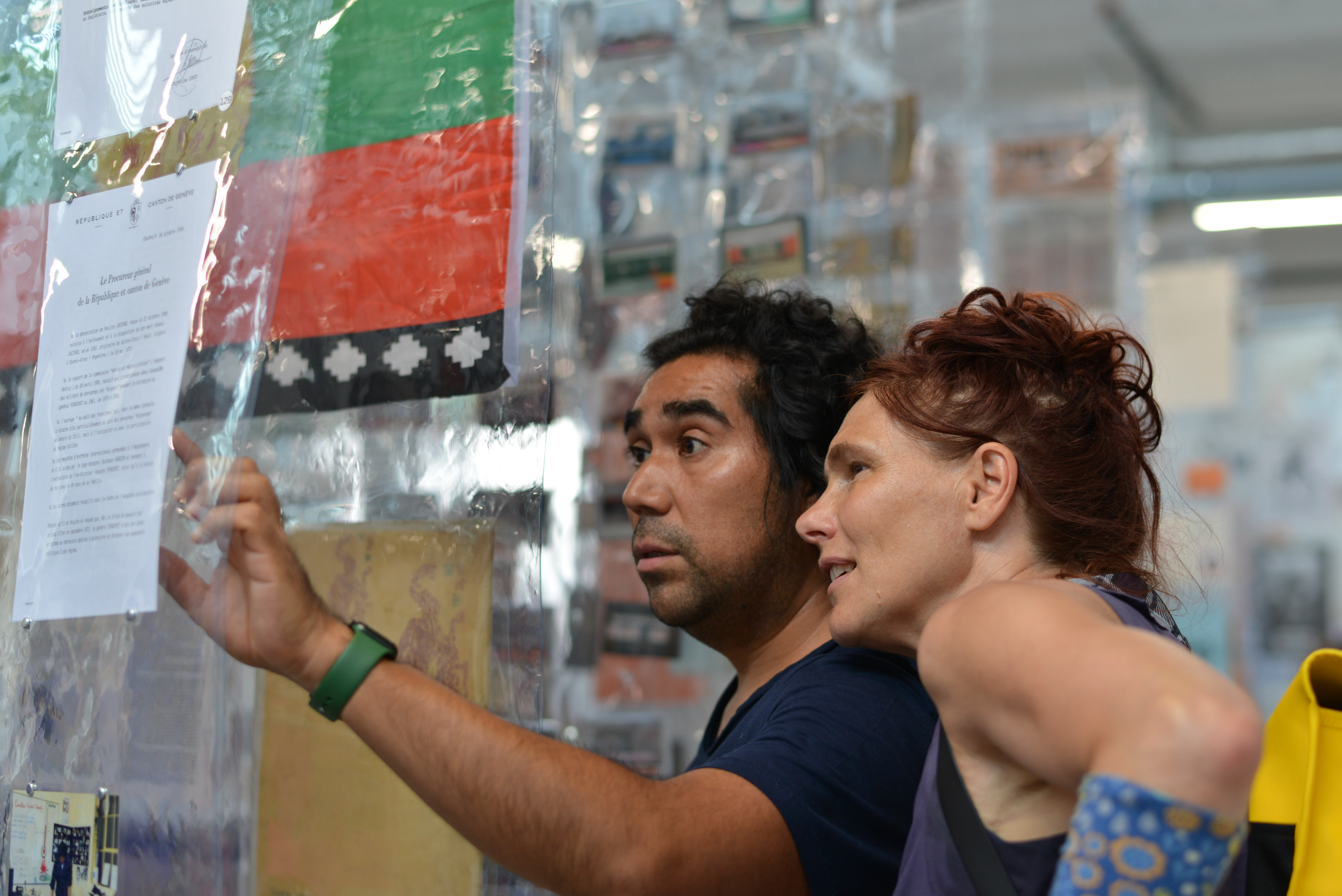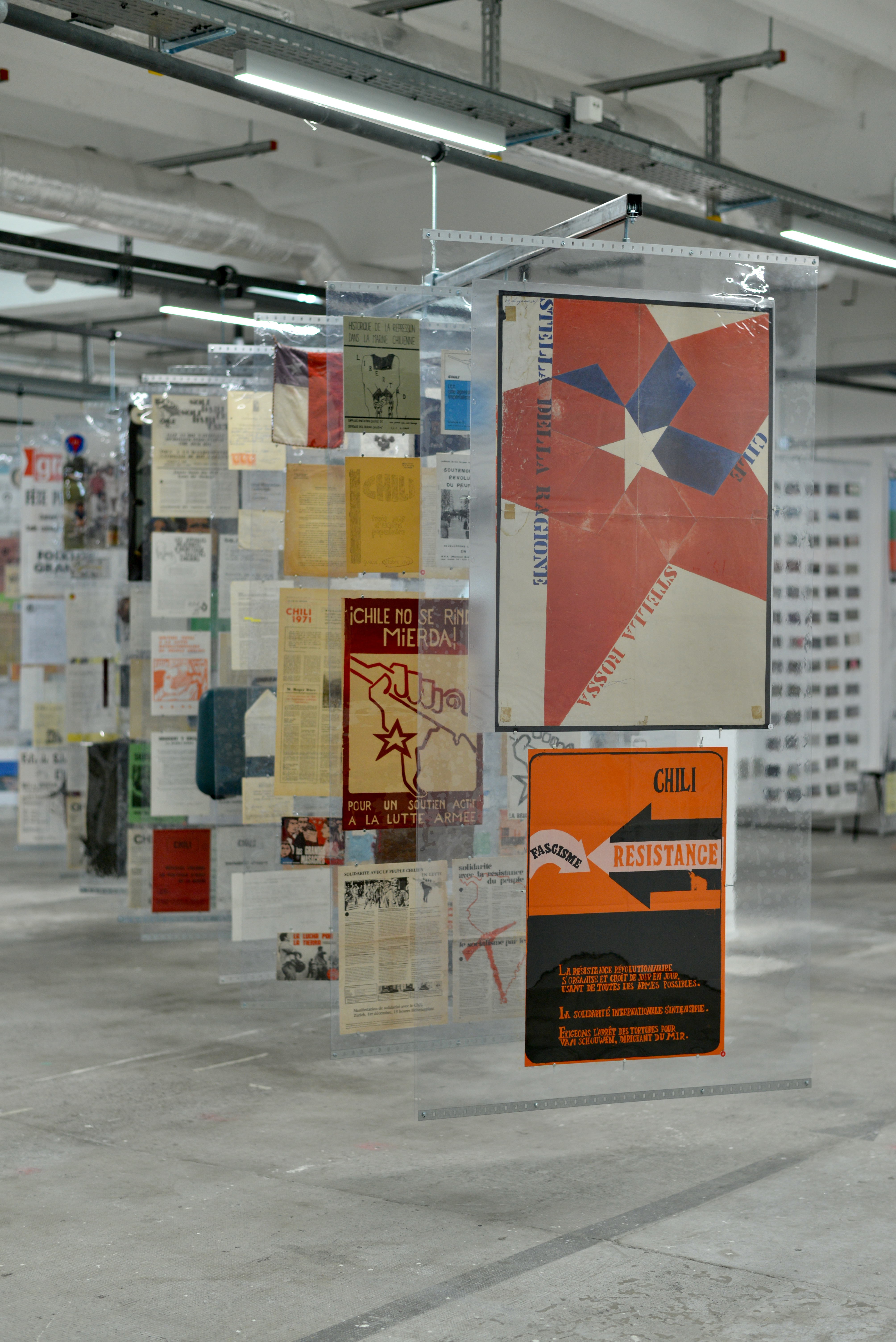Invisible Publishing House was a one-week workshop conducted together with Vytas Jancauskas, exploring publishing without visibility and questioning traditional notions of distribution, authorship, and readership. The project investigated forms of publishing that exist outside conventional channels, operating through networks of trust, encrypted communications, and ephemeral formats.
During the workshop, we visited several places where information is gathered and different approaches to data care are practiced: CERN, a data center, a commercial data center, and ITOPIE Digital Cooperative in Geneva. Students then worked with Raspberry Pi's and ESP32 chips to sculpt through Wi-Fi networks, devising different publication methods that were always place-based and contextually responsive.
We also conducted an OffScreen Exercise with no verbal or textual language - participants invented protocols and shared them on paper with others, who judged their effectiveness based on distance, speed, and clarity. This exercise explored non-verbal communication systems and alternative modes of information transmission that challenge conventional publishing paradigms.
This work proposes alternative models where content circulates through intimate networks, leaving minimal traces while maximizing meaningful engagement with ideas and fostering care-full reader relationships. The research contributes to conversations about privacy, alternative distribution methods, and publishing practices that resist datafication and surveillance capitalism through tangible publishing experiments that prioritize community autonomy and collective knowledge-sharing over extractive platform logics.
category
conceptual publishing, speculative media
date
2024-01-01
context
head
localisation
geneva
collaborator
vytas jankauskas
What influence do media technologies have on society and its institutions, and on our individual and collective agency? How can we intervene in social media environments to reclaim autonomy from algorithmic control? This workshop, developed in collaboration with Gordan Savicic and Juan Fortun at Chronus Art Center, explored these questions through hands-on critical making practices.
Participants engaged with techniques developed for the Web 2.0 Suicide Machine, utilizing automated web application testing as a form of interventionist practice. The workshop provided an overview of media hacking methodologies and recent web-based network technologies that shape our online experiences, introducing participants to writing code for their own critical interventions.
Through artistic hacking projects, participants developed strategies for regaining agency within social media ecosystems, learning to resist and subvert the feedback loops that structure platform capitalism. This pedagogical approach demonstrates how critical technical practice can become a site of resistance and collective empowerment.
Workshop supported by Pro Helvetia Shanghai.
category
workshop, technological agency
date
2019-08-01
context
pro helvetia, chronus art center
localisation
shanghai
collaborator
Young generations (10-12 yrs old) have been raised with handheld devices and other digital tools/toys. After some of my conversations with them, I noticed that many of them thought of the hashtag as one of the most important things to stage their messages.
I propose to the kids that there other ways to say out loud their thoughts and the best of them is writing as it is you could get first some local visibility and then find peers with the similar messages to say. I also propose to the kids that we will use conductive ink to do our protest signs as we could as well put in some sounds to our message.
Manifesting in the street also implies having a good ambiance and for that music and sound can create a joyful experience, I gave them a comparison between a walking carnival and a street protest and how they both are the peak of expression of happiness in the first and disagreement in the latter one.
category
workshops organised
date
2019-03-23
context
personal
localisation
geneva
collaborator
biblioteque municipale de genève
In order to bring diverse disciplines together in a meaningful way, the HDSA2017 program focused on the thematic thread and process of going 'on and off-the-grid' – a crucial societal topic and ongoing discussion at stake in both design/art and developer practices. By developing an elaborate hands-on program, H&D invited the Summer Academy participants to reflect on and question the dependence and obedience of our daily work and living environments. How can we, as modern nomadic workers who often do not differentiate between work and private life, look critically at the infrastructure, networks, and systems we rely on? Are we, as steadily connected networkers, capable of disconnecting from existing grids? Can we rethink and build self-sustaining environments that shape our future practices in unexpected ways? The program challenged and activated participants to use and push the boundaries of existing technology and programming platforms (web, hardware, software), networks online/offline (internet, deep web, darknet, peer-to-peer, blockchain), and user experience, all in a practical manner while incorporating content matters and ethical consequences of the proposed technologies and processes.
H&D
publication
category
workshops attended
date
2017-07-07
context
hackers & designers
localisation
amsterdam
At this workshop guided by Studio Frohlic I learn methods for the design and realization of connected products (IoT). In collaboration with Wei Peng we designed "b-Wave", a connected bracelet that allows wearers to find people who have similar musical tastes. In parallel we studied the principles of "IoT manifesto" and we applied them to our project.
The project was designed with a 3D printer, RFduino and Proto.io.
video
CIID
Manifest for the creation of connected objects consists of 10 points:
1.We do not Believe The Hype
2.We Useful Design Things
3.We Aim For The Win-Win -Win
4.We Keep Everyone And Every Thing Secure
5.We Build And Promote A Culture Of Privacy
6.We Are Deliberate About What We Collect
7.We Make The Parties Associated With An Iot Product Explicit
8.We Empower Users To Be The Masters Of Their Own Domain
9.We Design Things For Their Lifetime
10.In The End, We Are Human Beings. Video
category
workshops attended, internet of things
date
2017-07-07
context
copenhaguen institute of interaction design
localisation
copenhaguen
collaborator
wei peng
Digital Commoning Practices was a curatorial project exploring how digital tools and practices can foster collective ownership and shared resources. The project investigated alternative models of digital collaboration, moving beyond extractive platform capitalism toward more equitable forms of technological engagement.
Through workshops, discussions, and collaborative exercises, participants explored practical strategies for creating and maintaining digital commons. The project emphasized hands-on experimentation with tools and methodologies that support collective decision-making, resource sharing, and community autonomy in digital spaces.
This work contributed to broader conversations about technological sovereignty and the potential for digital technologies to serve community needs rather than corporate interests, laying groundwork for ongoing research into commons-based digital practices.
category
curatorial practice, digital commons
date
2021-01-01
context
station of commons
localisation
helsinki
collaborator
station of commons collective
NoMemorials is a participatory exhibition recounting memories of Chilean exile preserved by inhabitants of the Canton of Geneva. Presented at le Commun in MAMCO's courtyard during August-September 2023, the exhibition formed part of year-long commemorations marking the 50th anniversary of September 11, 1973 coup d'état.
The modular scenography featured vertical display units showcasing objects brought by exiled Chileans, alongside documents, posters, and artifacts narrating activist engagements against the dictatorship during exile. These movable modules facilitated dynamic spatial reconfigurations for concerts, workshops, and artist-led initiatives throughout the exhibition period.
A participatory timeline drawn on the wall invited visitors to mark important personal events absent from official historical records, accompanied by 250 printed testimonials creating a collective memory archive. This approach demonstrates how community curation can preserve and transmit experiences of political exile through embodied, spatial storytelling.
Supported by Collectif Migrations Sonores, Marisa Cornejo Studio association, and the City of Geneva, the project contributes to discussions about memorial practices and diasporic memory-making.
category
scenography
date
2023-08-01
context
personal
localisation
geneva
collaborator
pau saiz soler, cristobal barria (curator), fulvia torricelli (curator)

